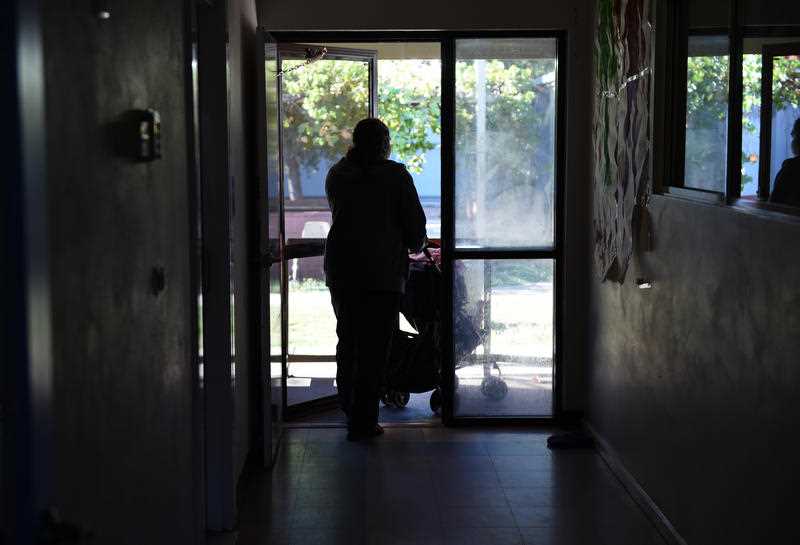A decade after it was first recommended, the ACT Government is finally setting up a service for Indigenous women victims of family violence that will deliver legal, advocacy, practical, and healing activities.
This service was recommended a dozen years ago, in a 2009 report into Indigenous family violence. Why, the opposition asked in last week’s annual hearings, did it take the Labor-Greens government a decade to acknowledge that report, and longer to act on its recommendations?
We Don’t Shoot Our Wounded…, published by the ACT Victims of Crime Coordinator in March 2009, investigated how Indigenous victims engaged with the justice system and service sectors.
Indigenous people were five times more likely to be affected by family violence than the non-Indigenous population, but their voices were silenced, the report stated. The researchers interviewed 15 Aboriginal women about their experiences both of violence and of the criminal and justice systems.
The report made 11 recommendations on how government and community could “heal the profound and long-lasting damage that family violence is doing to victims, to children and to the whole community”.
But the government did not respond to the report until October 2019.
Then, Yvette Berry, ACT Minister for the Prevention of Domestic and Family Violence, and Rachel Stephen-Smith, ACT Minister for Aboriginal and Torres Strait Islander Affairs, made a joint statement in the Legislative Assembly acknowledging the report and confirming the government’s commitment to addressing the high rates of family violence in the Indigenous community.
Last week, Ms Berry suggested the government did not respond immediately because the report was delivered outside government, and was not an official report; government did not have to respond within a certain time, as it would to a committee recommendation or audit report.
Besides, the reason for the delay was historical, Ms Berry argued; the report was published three years before her election.
“Since 2009, and more recently, the government has changed its approach,” Ms Berry said.
Liberal MLA Elizabeth Kikkert, Shadow Minister for Aboriginal and Torres Strait Islander Affairs and for the Prevention of Domestic and Family Violence, said the government’s explanation was inadequate and hurtful. While the Victims of Crime Coordinator may be independent, her office was funded by the ACT Government, and her job was to advise the Attorney-General.
“The simple truth is that successive Labor-Greens governments did not think that this report was important enough to even acknowledge,” Mrs Kikkert said.
“To ignore this report because it wasn’t from the Auditor-General or an Assembly Committee is patronising, and will be felt by many in the Aboriginal and Torres Strait Islander community as a direct insult.
“It took courage for community members to share their personal experiences. Labor and the Greens may not have been legally required to respond to the voices of victims in this report, but they certainly had a moral obligation.”
“We’re absolutely committed to responding to [the report], and we’ve been doing that work with the [Domestic Violence Prevention Council’s Aboriginal and Torres Strait Islander] reference group, and have been guided by them,” Ms Berry said.
In recent years, the ACT Government has created Ms Berry’s portfolio of Prevention of Domestic and Family Violence (2016); appointed Kirsty Windeyer as Coordinator-General for Family Safety (2020); and increased the rate of the Safer Families Levy from $30 last year to $50 per household in 2024/25. Those initiatives made responding to the report more important, Ms Berry said.
The women’s service is one of four priorities the reference group has identified. The others are developing a coordinated approach to supporting children and young people affected by family violence; providing advocacy, assistance, and support to Aboriginal and Torres Strait Islander women from when they report to police through the prosecution and court process; and interventions to address the trauma and harm from family violence.
Government initiatives address some of the report’s recommendations, a spokesperson said. The ACT Aboriginal and Torres Strait Islander Agreement 2019-2028 supports the Closing the Gap Target of a significant and sustained reduction in violence against Aboriginal and Torres Strait Islander women and children. The government has established the Dhunlung Yarra Service, a dedicated Aboriginal and Torres Strait Islander therapeutic service, and funded an Indigenous worker as part of the Family Violence Safety Action Pilot, which provides specialised case management for high-risk cases of domestic and family violence.
Mrs Kikkert said that she would make sure the government implemented all the recommendations.
“After a 10-year delay, I am committed to keeping the ACT Government accountable,” she said. “We must constantly be listening to the Aboriginal and Torres Strait Islander community. We need responses to violence that strengthen families and are culturally safe.”
Get all the latest Canberra news, sport, entertainment, lifestyle, competitions and more delivered straight to your inbox with the Canberra Daily Daily Newsletter. Sign up here.



